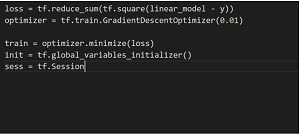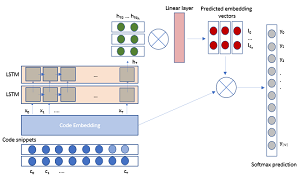News
IntelliCode Advances with First Deep Learning Model for Python in VS Code
Remember when IntelliSense first wowed you with automatic code-completion suggestions as you programmed in Visual Studio?
Well, a new announcement from Microsoft shows just how far that notion has advanced, with the help of artificial intelligence (AI), in IntelliSense's successor, IntelliCode.
While IntelliSense provided a pop-up list of possible options for you to accept or not -- such as list members, parameter info and word completion -- IntelliCode,
debuting in 2018, took that a step further. It leveraged AI to scan thousands of top-quality GitHub code repos to inject code context into the process in order to put the options you're more likely to use at the top of the suggestion list.
Specifically, at the time, Microsoft said it:
- Delivers context-aware code completions
- Guides developers to adhere to the patterns and styles of their team
- Finds difficult-to-catch code issues
- Focuses code reviews by drawing attention to areas that really matter
 [Click on image for larger, animated GIF view.] IntelliCode in Animated Action (source: Microsoft).
[Click on image for larger, animated GIF view.] IntelliCode in Animated Action (source: Microsoft).
Now, utilizing advances in deep learning for natural language modeling, Microsoft has announced a first in programming language modeling.
"We have been working tirelessly to enable IntelliCode for more programming languages and, in the meantime, researching ways to improve the model precision and coverage to deliver an even more satisfying user experience," said Shengyu Fu, in an Aug. 24 blog post.
Yu, a principal applied scientist manager in the Visual Studio Data & AI Team, continued further: "One of our major research efforts was to bring the latest advancements in deep learning for natural language modeling to programming language modeling. After leveraging technologies like Azure Machine Learning and ONNX Runtime, we have successfully shipped the first deep learning model for all the IntelliCode Python users in Visual Studio Code."
The detailed post delves into the high-level tech behind the tool, from training deep neural networks, to the intricacies of long short term memory (LSTM) networks, to reducing model size via quantization, which this reporter isn't even going to try to understand, much less explain.
 [Click on image for larger view.] IntelliCode's Deep LSTM Model Architecture (source: Microsoft).
[Click on image for larger view.] IntelliCode's Deep LSTM Model Architecture (source: Microsoft).
Suffice it to say Python programmers using VS Code have new AI-driven code helpers to play with, and Microsoft is soliciting their feedback.
"With a great team effort, we completed the staged roll-out of the first deep learning model to all the IntelliCode Python users in Visual Studio Code," Fu said.
And there's other new functionality to try out in the updated IntelliCode tool: "In the latest release of the IntelliCode extension for Visual Studio Code, we've also integrated ONNX Runtime and the LSTM model to work with the new Pylance extension, which is written entirely in TypeScript. If you're a Python developer, please install the IntelliCode extension and provide us feedback."
That tool has been installed more than 6.6 million times.
Going forward, Yu said Microsoft developers are planning to apply the deep learning model of member completion to more languages, all while seeking to enhance the transformer based deep learning model for even longer code completions.
About the Author
David Ramel is an editor and writer at Converge 360.